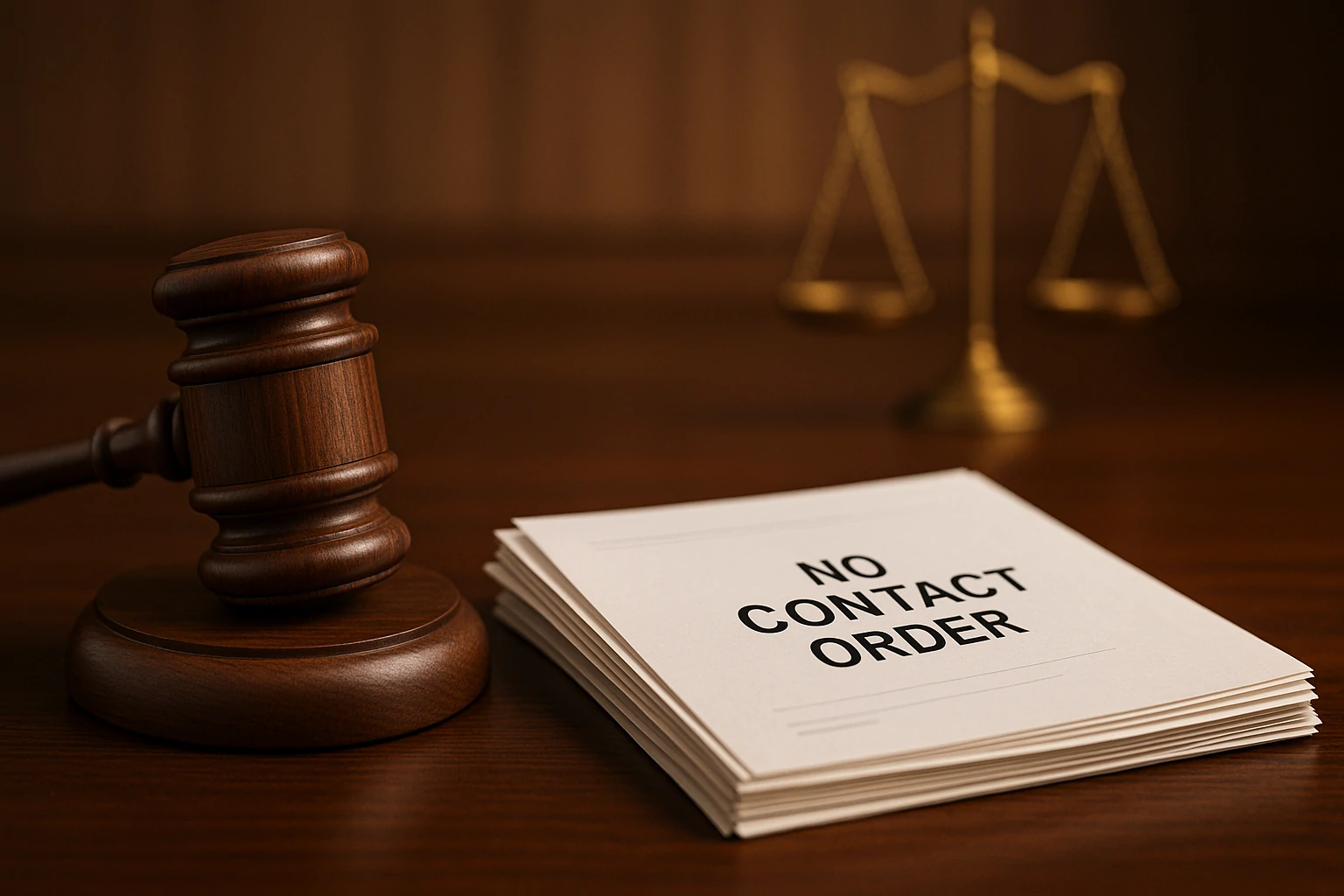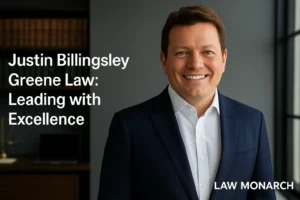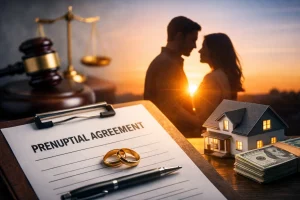Conflict often shakes the balance of daily life. Some disputes grow into threats, harassment, or abuse. These moments create fear and raise the need for protection. The law gives options to guard people from danger, and one strong option is the no contact order.
A no contact order tells one person to stop reaching out to another. It prevents calls, texts, visits, or online messages. Courts use it when safety is at risk. Once issued, the order sets a legal shield between the parties. Breaking it can lead to arrest or jail.
Handling such cases without legal help is difficult. Forms, hearings, and strict rules create stress. Mistakes weaken the case or delay protection. An attorney who handles no contact orders makes the process clear. They know the system and stand by your side in court.
This article explains what a no contact order means, why people seek it, and how an attorney becomes essential. It also covers the types of orders, evidence, challenges, and what happens after a judge grants one.
What Is a No Contact Order?
A no contact order is a command from the court. It bars one person from talking to, meeting, or approaching another. The order can also block contact through third parties or social media. It may cover the person’s home, workplace, or school.
Courts issue these orders in both criminal and civil cases. In criminal cases, they often follow charges of assault or harassment. In civil cases, they protect people from abuse or stalking. The rules differ from state to state, but the purpose is the same. The goal is safety.
Breaking this order is serious. Police can arrest the person at once. Judges treat violations as crimes, which may bring fines or jail. That is why a lawyer’s role matters. They present your case with care and push for strong terms that protect you.
Why You May Need a No Contact Order
Many people believe these orders apply only in domestic abuse. The truth is wider. The law allows them in many forms of conflict. Victims of threats, stalking, harassment at work, or unwanted contact from former partners often rely on them.
The order sets limits when words or actions cross the line. It also gives police the power to step in before harm grows worse. Without such an order, threats may continue unchecked. With the order, there is a legal wall that shields the victim.
Every case looks different. Some involve family disputes. Others involve strangers or co-workers. In each case, a lawyer helps explain what type of order fits the facts. They then guide you through the request and present your story to the judge.
The Role of an Attorney in No Contact Order Cases
A lawyer is not only a voice in court. They bring clarity to a stressful process. They explain your rights in simple terms and tell you what steps to take. They also prepare the forms, gather the proof, and speak for you in hearings.
An attorney guards against false claims as well. Sometimes one person files a claim to gain advantage in divorce or custody. If you face such a false order, a lawyer defends your name. They show the court facts that clear you.
The help continues after the order is granted. If the other person breaks it, the lawyer tells you how to act. If you are accused of breaking it, they guide your defense. Their role does not end with the paper order. They provide lasting protection through the legal process.
Types of No Contact Orders
Courts issue several forms of no contact orders. An emergency order comes when the risk is urgent. It lasts only a short time until a hearing. A temporary order lasts until the judge makes a final decision. A permanent order can last years, and in some cases, it can extend further.
Criminal cases bring another type of order. Judges often attach them to assault or harassment charges. Civil courts also grant restraining orders even without criminal charges. Each type has its own rules, but the aim remains the same: to stop unwanted contact and protect safety.
Evidence Needed to Support Your Case
Courts need proof before issuing strong orders. Proof can include police reports, medical notes, saved messages, photos, or witness accounts. Judges want to see a clear story backed by facts.
A lawyer knows how to shape this story. They gather your records, explain what to present, and connect each piece to the law. Without strong proof, a case may fail. With proof in order, the judge has reason to act.
Challenges in No Contact Order Cases
Emotions often run high in these cases. Some claims are true, some false, and others fall into grey areas. Judges must sort through facts with care. A lack of evidence makes the task harder.
False claims are another challenge. They may appear in family disputes where one side tries to control the other. You can also read about how a gang stalking attorney fights covert harassment and false charges here. Even after the order is granted, violations may occur. Some people ignore the command and keep reaching out. Others break it by mistake, not knowing that even small replies can count as violations.
An attorney makes these hurdles easier to face. They protect your rights, stop errors, and act when the other side ignores the order.
Costs of Hiring an Attorney
The cost of a lawyer depends on the case and the lawyer’s skill. Some charge flat fees. Others bill by the hour. Complex cases cost more than simple ones.
Though the price may seem high, it is best seen as an investment in safety. Some states also offer free legal aid for victims of abuse. Lawyers who work in this field can guide you toward those resources.
Steps to Take Before Filing
Strong preparation gives your case power. Write down every incident with dates and details. Save messages or voicemails that show threats. Tell friends or family about what has happened so they can act as witnesses. Report serious events to the police. Speak to a lawyer before you file so you avoid mistakes and plan each step. You can also read about can a power of attorney transfer money to themselves to see how courts handle financial power in legal matters.
What Happens After a No Contact Order
After the court issues the order, both sides get a copy. The police also get notice. Once in place, the order gives officers the power to arrest for violations.
Your lawyer will explain how to report any violation. They can also help if you need to extend the order or change its terms. Some orders last only months. Others can last for years. The judge decides based on the facts, but your lawyer can ask for more time if needed.
When to Seek an Attorney Immediately
There are moments when waiting is not wise. If you face clear danger, you need a lawyer at once. If the other party already has a lawyer, you must act fast. If child custody or false claims are part of the case, delay can harm your rights.
Even if the case looks simple, the legal process can trap you in mistakes. An attorney knows the system. They keep you safe from legal errors and give you the strength to face court with confidence.
Conclusion
A no contact order is not just paper. It is a tool that protects people in harm’s way. It stops threats, blocks harassment, and creates space for peace. Yet the value of the order depends on how it is requested, supported, and enforced.
An attorney for a no contact order makes sure the case stands strong. They explain your rights, gather your proof, and fight for your safety. They defend you against false claims and guide you when violations occur. Their help stretches beyond the courtroom. It brings peace of mind when life feels unsafe.
If you or someone close faces threats or harassment, do not stay silent. Legal help is near. Speak to an attorney who understands no contact orders. A step taken today can bring safety tomorrow.




